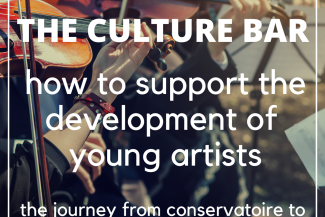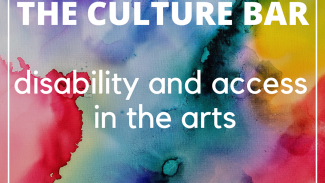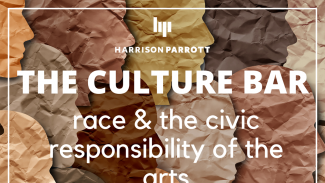The Culture Bar: How to support the development of young artists
8/4/2022

Under the Spotlight
In this episode of The Culture Bar podcast series, we explore what the career paths of young artists look like, as well as how we can support up-and-coming artists. We will unpick barriers to entry for young musicians, as well as understand what skills are required, what success looks like, and what talent managers look for when signing a new artist.
Our incredible panel includes:
- Lydia Connolly – Director & Head of Artist Management, HarrisonParrott
- Randall Goosby – American violinist, Decca Classics recording artist, and former Winner of Young Concert Artists International Auditions, amongst many other accolades
- Benjamin Woodroffe – President, Global Foundation for the Performing Arts
Hosted by HP’s Henry Southern
This episode is part of our ‘Under the Spotlight’ podcast series where we shine a light on ‘challenging’ topics in the arts, and focus on guests living these experiences and who are working to create change in the sector.
The Culture Bar is a podcast series created by HarrisonParrott focussing on conversations in culture and the arts.
Find us on Spotify, iTunes, Google Podcasts, YouTube, Podbean, Deezer and all good podcatcher sites.
Use #theculturebar or follow us on Twitter @_TheCultureBar to keep up with our latest releases.
A special thank you to Robert Cochrane, the composer of the theme tune music, and Merlyn Thomas, our editor.


